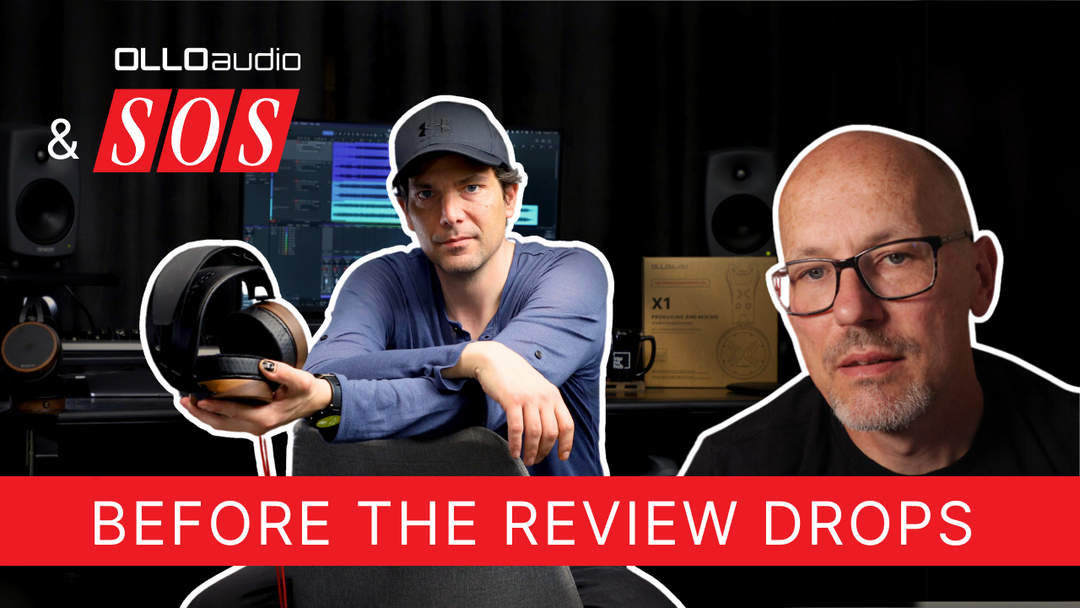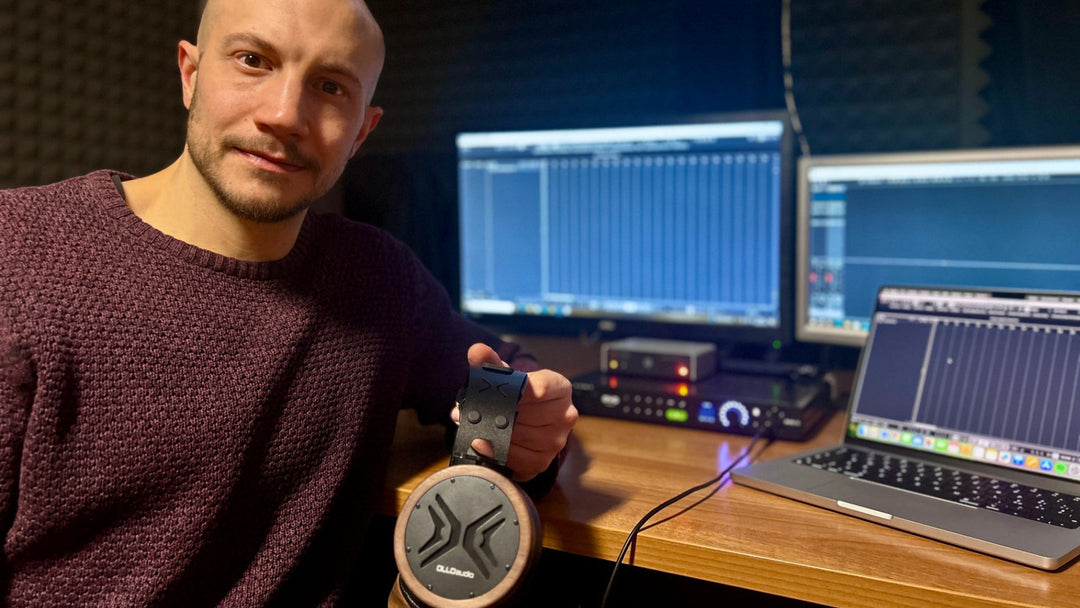THE ROLE OF EDUCATORS IN THE MUSIC INDUSTRY | #03 PODCAST EPISODE
with Adam Moseley and Lawrence Biancardi
In this episode, we have two great engineers. Adam Moseley (U2, Rush, Roxette,...) and Lawrence Biancardi (mastering engineer). Lawrence is a former student of Adams’. We’re exploring the role of educators in the music industry.
Rok: Is it a relationship between a mentor and a student?
Rok: Lawrence would you agree there’s competitiveness today just as it was back in the day?
Lawrence: Sure, I work with Adam and other engineers and ask them about any questions I might have. We regularly connect online and I think that makes is easy to work and exchange knowledge. If we didn’t have that, I’d have to work in a studio environment to be able to ask mentors for advice and guidance.
Adam: Back then I was just meant to watch, listen, don’t talk and try to figure out what’s going on.
Rok: Do you still have “tea boys”?
Adam: Over here it’s called runner rather than tea boy. The Intern system in the US is very strong. They have to fetch food, make sure the artists are being looked after, even clean the bathroom. They know they are never asked to do anything that I hadn’t done myself. I have assistants that started as an intern.
Rok: What was your journey, Lawrence?

Lawrence: Luckily I went straight to engineering in the studio. I also studied music production and worked on small jobs, just taking on what I could. Saying I could do the job, technically even when I didn’t have experience.
Rok: Does your mentor play any role in building your confidence? Lawrence?
Lawrence: Yes of course. When I first properly met Adam, I came to his studio and showed him a few tracks. I was thinking I was going to take over the world with my music. Adam was nice and pointed out things that are important. He inspired me to take notice and understand of them. I think first someone has to plant that seed and show you what these things are in order for you to recognise them and develop an ear for them.
Rok: Mentor needs technical skills and people skills. Adam, how did you approach your own learning path?

Adam: I realised pretty quickly the most important thing was don’t screw up. Learn as much as you can and put as much effort as you can because it was very competitive when I was starting out at the age of 20. I was just a kid basically. I think one of the most important things for anyone entering our business is to be politely persistent. Sometimes students would come to the class because they couldn’t get in and they’d turn up to the first class and ask if it’s at all possible. If they do that, they’re in. That’s the most important thing, to want in enough to actually turn up even with low chances. Others might just send me loads of emails but never show up.
Rok: Is hard work first or talent?
Adam: This is the same for students of engineering and artists you work with. Some artists may not be that great but they nail a pop tune and they think they’re the best thing ever. Other artists, sometimes their insecurities, push them to do better and better. In that respect, you need to find the balance between confidence with ego and enough self-checking to do better and to review.
I really believe if someone wants to do something, they can learn.
Rok: Is being self-taught important?
Lawrence: If you’re curious I think, you naturally put in the hard work. If you enjoy something you are going to spend countless hours doing it and you’re not going to really think someone owes me money for doing this. It’s your passion, your hobby.

Rok: There’s a progression in the knowledge everyone goes through in order to stay relevant.
Adam: Today you have to be aware of what came before. Everything is progression. Every some time technology takes a huge leap, sometimes it’s just small incremental changes. You have to stay current. I worked with tape and later with Midi and now I use plugins. It’s ever-evolving. Technology is there to be a tool. You need an idea and know how to use the tools available. Explore.
Rok: There’s so much technology that it’s basically noise. How do you select proper tools?
Lawrence: A lot of it is research, asking questions, trying out… Luckily we’re in a plugins era when it’s easy to try different things, replicas of hardware tools. There’s so much content online to help with exploring. I think that once you used them, tried them and learned the mistakes you understand the nuances of the tools you have. After a while, you get a grasp of certain things about the tools you use.
Rok: What are the first steps for a student to do in order to actually make a living in this industry?
Adam: Realising no one is going to come and knock on your door saying here’s this amazon opportunity that will save you for the rest of your life. Every moment you have to create. Have to network, find bends and don’t expect to get paid. If you do it right you’ll get paid later on in the journey. Constantly educate yourself and be the kind of person that people will want to work with. Earn that trust. To do that you need to get experience by working. You can only work if you’re going out and you’re finding artists offering to do a mix for a little money and if they like it, ail the job for the full album. The big thing is, don’t expect to start where you want to land.

Rok: What were your main steps to make it this far Lawrence?
Lawrence: I’d say building a reputation for being a go-to person for something. It’s important to have good relationships with people included in the project and recognise you as the go-to person for what you do. I’ve got a reputation to be a go-to mastering engineer and that is because I’ve been doing it a lot with artists, bands and doing it for some time so the word of mouth can develop. I haven’t really spent money on advertising, I just keep going and make sure clients want to work with me again.
Rok: Thank you both for being a part of this!






